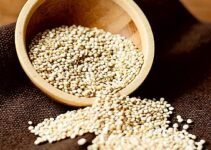Difficulties of making friends and express our emotions can be caused by genetic inheritance, shows a recent study at the Universities of Oregon, United States and Toronto, Canada.
According to many experts, empathic behavior and body language depend on a genetic variation associated with sociability. People who have this genetic variation present an increased risk of autism, a condition characterized by difficulty expressing emotions.
In other words, the genetic variation is responsible for your social life and in medical terms, this genetic variation inhibits the expression of emotions, being involved in the production of “oxytocin”, which is a hormone. This hormone is associated with love, and generosity, commitment and understanding the feelings of others.
“Genetic variation responsible for the strong presence of empathy is “GG”, while the genetic variation that increases the risk of autism and causes a reserved behavior is “AG” “explains Dr. Sarina Rodrigues Saturn from the University of Oregon, who is the psychologist and coordinator of the study.
In conclusion, the most part of how you relate to other people emotionally may be written into your DNA. More than that, different characters such as being caring, open or trusting are strongly connected to a specific gene variation. People with “GG” variants of this hormone, that is oxytocin, have much better social abilities and a high self-esteem. On the other hand, those that have “AG”, have a much harder time dealing with mental health problems.
What Factors May Damage Your Genetic Code?
It is well known that ultraviolet radiations, smoking, and infections can cause genetic mutations. When genetic mutations are acquired during your lifetime, they are not passed to your descendants, but can cause severe organ dysfunctions, increase the risk of several diseases, even cancer.
Normally, when a cell of your body divides the result will be an identical cell. This is absolutely normal process, which renews your body. But, if there are errors during this replication process, then changes may occur in your genetic code, and the new cells will not be identical with the old ones. These changes are called mutations, known also as spontaneous mutations. It is not yet known, which makes these cells to behave weird.
Some of them do not have any impact on health, because the gene itself is not disruptive. However, when a mutation changes the “instructions” of gene function, can disrupt normal development or may be the trigger of some diseases.



